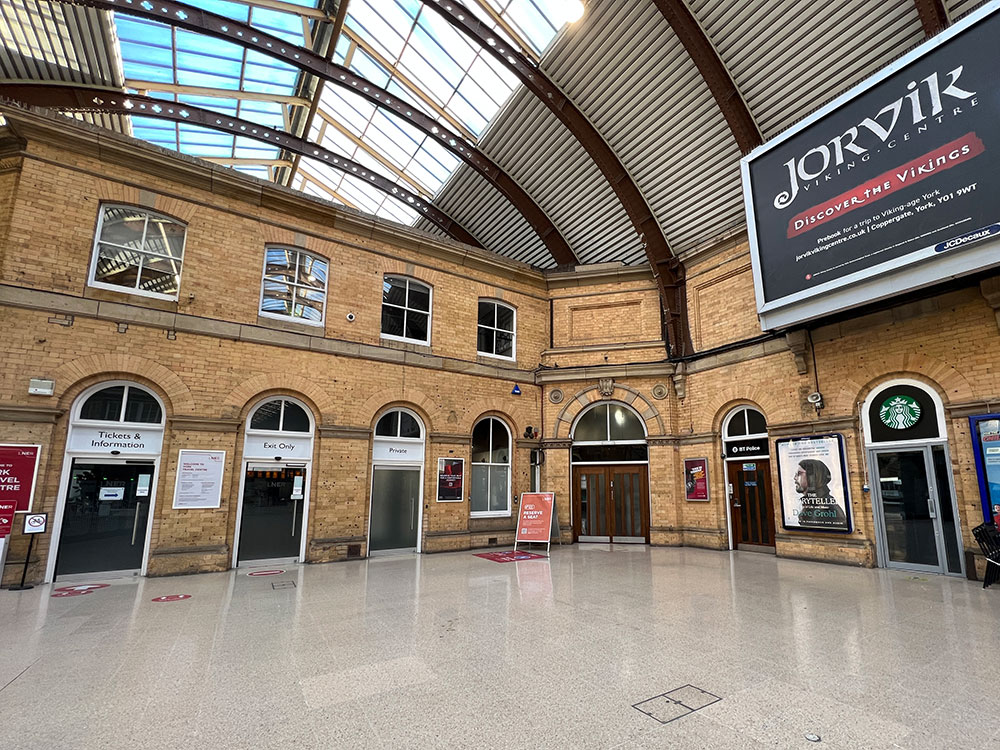Plans for a mass closure of railway station ticket offices in England have been announced.
Industry body the Rail Delivery Group (RDG) unveiled proposals which could lead to nearly all offices being shut, with facilities only remaining open at the busiest stations.
In response, train operator LNER said it was retaining the ticket office at York Station, along with those at Edinburgh Waverley, Newcastle, Doncaster, Peterborough and London King’s Cross.
LNER proposes to ‘repurpose’ ticket offices at its other stations on the East Coast Main Line.
The PA news agency understands a consultation process with affected staff has begun, and operators hope to avoid compulsory redundancies.
The RDG pledged there will be “more staff available to give face-to-face help”.
There are 1,007 stations in England run by train companies operating under contracts issued by the government.
Posters are being displayed at the vast majority of these today (Wednesday) informing passengers about the potential closure of the ticket office.
Following a consultation, the government will make the final decision on which offices will be axed.

It is not known how quickly the first sites will close, but the programme is expected to last for three years.
RMT general secretary Mick Lynch described the closure policy as “a savage attack on railway workers, their families and the travelling public”.
LNER says 87 per cent of tickets now purchased online, only six per cent are purchased at ticket offices and seven per cent through ticket vending machines at their stations.
It plans to have “more colleagues deployed across station concourses and platforms to assist customers wishing to purchase tickets or asking for help or information”.
LNER managing director David Horne said: “Our customers’ habits have changed, and we must plan for the needs of our future customers.
[adrotate group=”3″]
“We want everyone to enjoy an even better experience when travelling with LNER. Our proposals for each of our stations will bring our people closer to our customers, improve accessibility and make good use of the hand-held technology and digital systems that we have pioneered in the rail industry.
“Our people will be crucial to the success of our plans, and that is why it is so important to empower our teams to respond to customer needs as we attract more people to rail – the most sustainable way to travel.”
[tptn_list limit=3 daily=1 hour_range=1]
